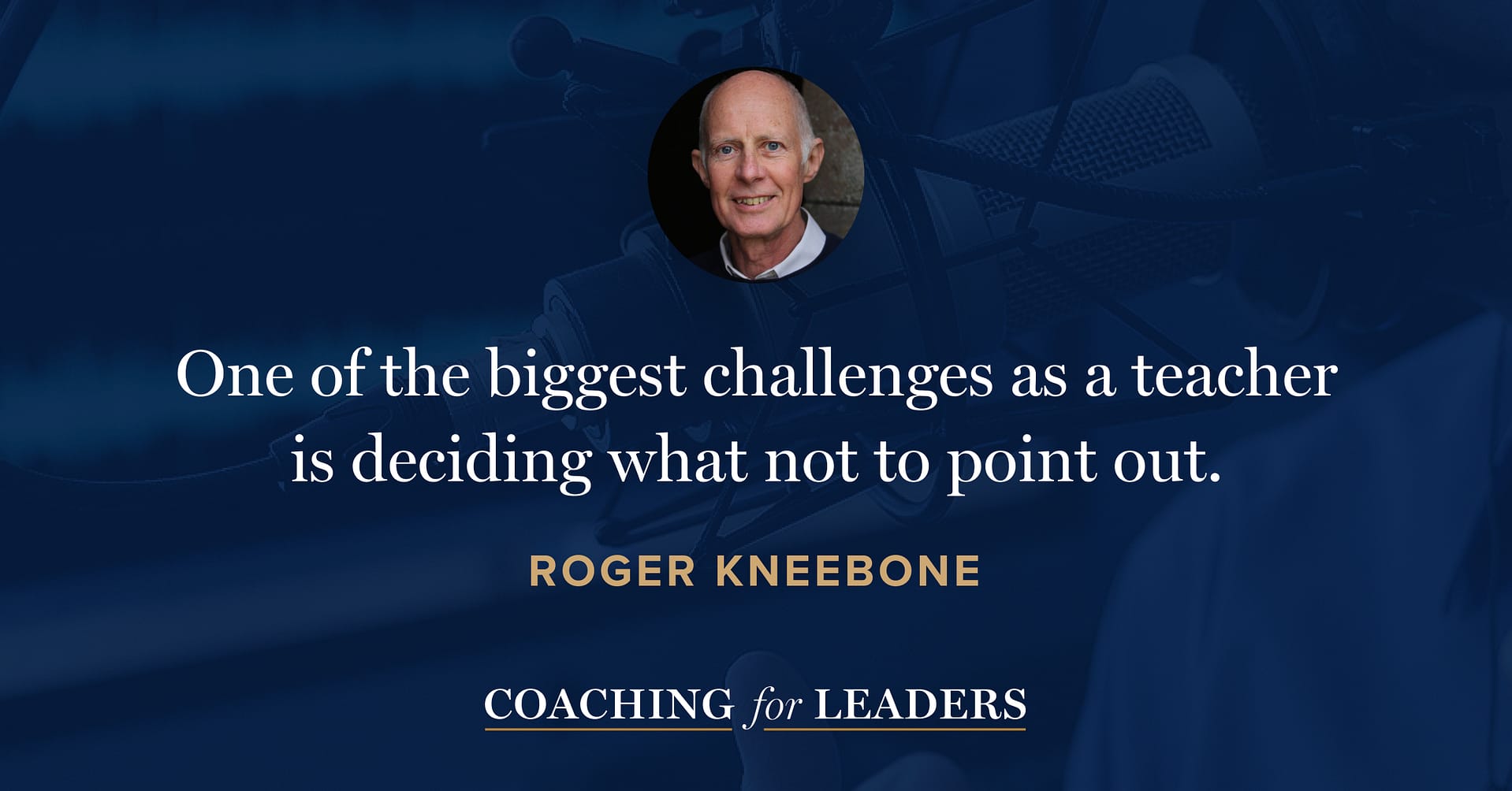Roger Kneebone: Expert
Roger Kneebone directs the Imperial College Centre for Engagement and Simulation Science and the Royal College of Music–Imperial College Centre for Performance Science. He researches what experts from different fields can learn from one another, including a creative team of clinicians, computer scientists, musicians, magicians, potters, puppeteers, tailors, and fighter pilots. He is the author of Expert: Understanding the Path to Mastery*.
Many leaders get into the roles they have because they are the experts in their work. But once you’re leading, the work is less about being the expert and more about teaching your expertise to others. In this conversation, Roger and I explore how to get better at doing this well.
Key Points
- Experts don’t often recognize that they are experts.
- A characteristic of many experts is a dissatisfaction with where they are and an awareness that they could do better.
- Experts should notice what’s missing and what would be most helpful to the less experienced person.
- Effective teachers zero in on one thing at a time, even if they notice many areas for improvement.
- Passing along expertise is not just the skills themselves but the perspective of why each skill matters.
- Land in the zone of proximal development. The skill should neither be too easy or too difficult.
Resources Mentioned
- Expert: Understanding the Path to Mastery* by Roger Kneebone
Interview Notes
Download my interview notes in PDF format (free membership required).
Related Episodes
- Help People Learn Through Powerful Teaching, with Pooja Agarwal (episode 421)
- The Art of Mentoring Well, with Robert Lefkowitz (episode 599)
- How to Handle High-Pressure Situations, with Dan Dworkis (episode 701)
Discover More
Activate your free membership for full access to the entire library of interviews since 2011, searchable by topic. To accelerate your learning, uncover more inside Coaching for Leaders Plus.





